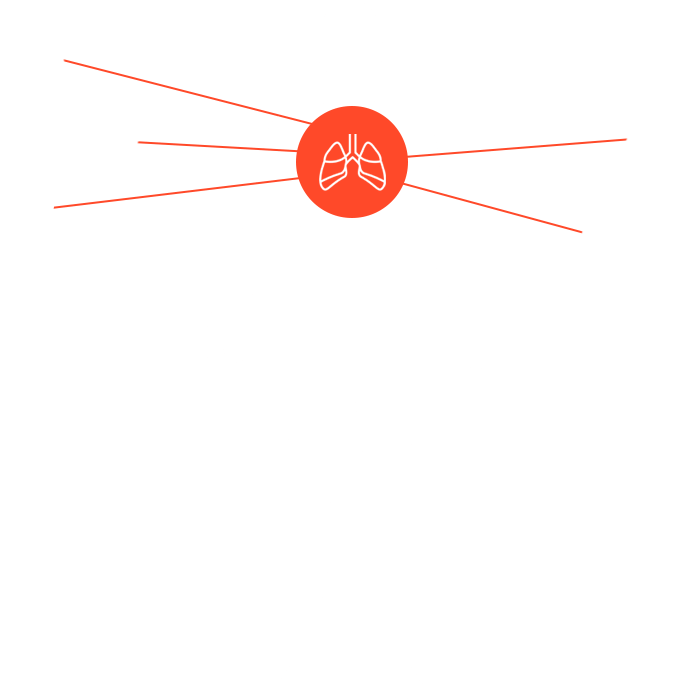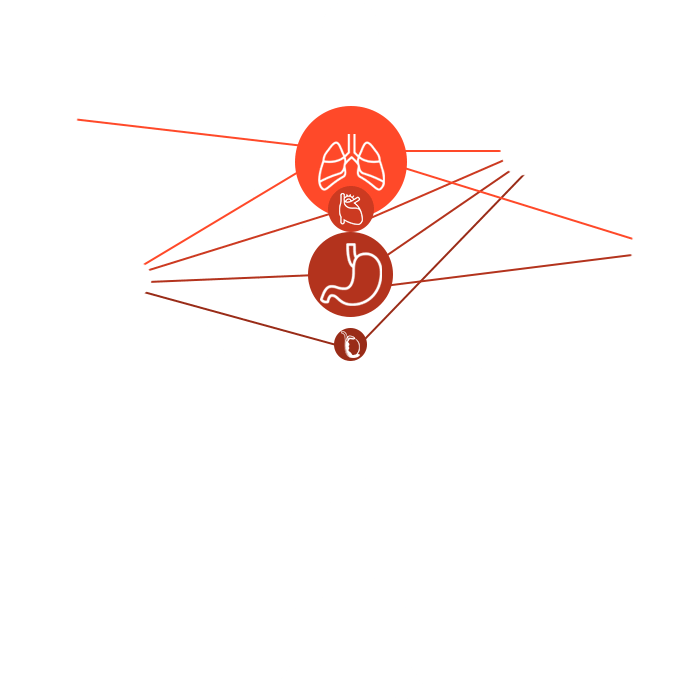Asbestosis
Diagnosis
It is not that simple to diagnose asbestosis, it can imply several visits to the doctor and a variety of tests. Sometimes it may be possible that even the physician cannot diagnose or detect asbestosis because of its similarities with many other conditions. This is why many patients decide to visit an oncologist or pulmonologist for additional testing. The doctor will initially take a medical history in order to assess the length and frequency of the exposure to asbestos. S/he will then carry out a physical examination using the stethoscope to listen to abnormal breath sounds. There are two histologic grades that doctors use, one is to indicate the severity of the disease and the other, the extent of cancer.
 Biopsy Lung function test X-Ray CT-Scan gallium scan
Biopsy Lung function test X-Ray CT-Scan gallium scan
- Biopsy
- Lung function test
- X-Ray
- CT-Scan
- gallium scan
Depending on the observations, the doctor will ask for further investigations such as:
- X-rays, to look for abnormalities in the lung structure
- CT scans, to see more detailed images of the lungs
- Gallium lung scan, to identify the lung inflammation
- Lung function tests
- Biopsy, to rule out mesothelioma and lung tumor
Why should I get tested and diagnosed early?
Early mesothelioma diagnosis is the secret of having the best outcome possible with this terrible disease. It is important to get tested if you believe you have been exposed to asbestos at some period of your life. Because this is such a rare form of cancer, it's important for patients to see a doctor that specializes in mesothelioma. Diagnosing mesothelioma in its earliest stage offers you multiple treatment possibilities that could extend your life expectancy.
Mesothelioma
Diagnosis
Diagnosing this rare cancer is extremely challenging, first of all, due to the fact that many doctors have never encountered mesothelioma. Second, the latency period is 15-60 years and many patients are not even able to remember being exposed to asbestos. Third, the early signs are easily mistaken for other ailments, such as cold, flu or pneumonia (pleural mesothelioma), hernia or irritable bowel syndrome (peritoneal mesothelioma), pericarditis or myocarditis (pericardial mesothelioma), hernia (testicular mesothelioma). For all these reasons, a thorough investigation is required. The doctor will begin the diagnosis process by documenting medical history and a physical examination of the patient.
 X-Ray CT, PET, MRI-Scan Blood tests and biomarkers biopsy
X-Ray CT, PET, MRI-Scan Blood tests and biomarkers biopsy
- X-Ray
- CT, PET, MRI-Scan
- Blood tests and biomarkers
- biopsy
Based on the outcomes the doctor will require further investigations such as:
- Imaging tests (X-Rays, CT, PET, MRI)
- Blood tests and biomarkers to determine if cancer is present and its type
- Biopsies that involve taking a tissue or fluid sample from the tumor or its surrounding area
Why should I get tested and diagnosed early?
Asbestosis is an aggressive pulmonary disease that can be very difficult to trace since symptoms look like those of a less serious condition such as asthma. If asbestosis is diagnosed early, prognosis and treatment options can become better. Most cases are diagnosed late because symptoms do not develop until the disease has reached a more advanced stage. Still, early detection is possible if those that were exposed to asbestos receive annual their medical exams that check for asbestos-related disease.
